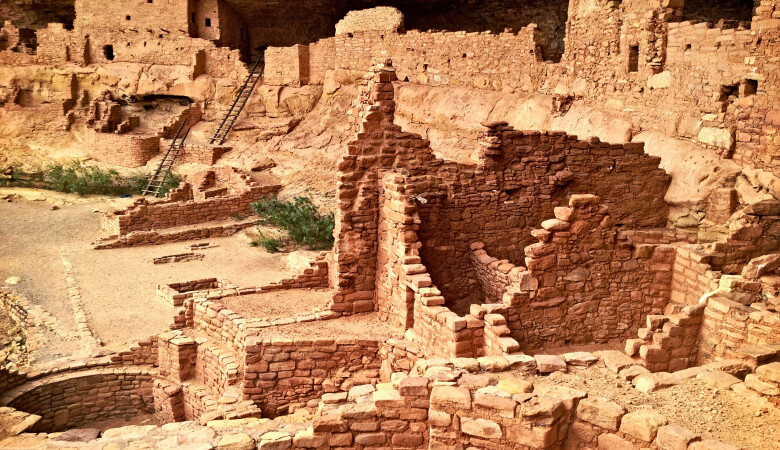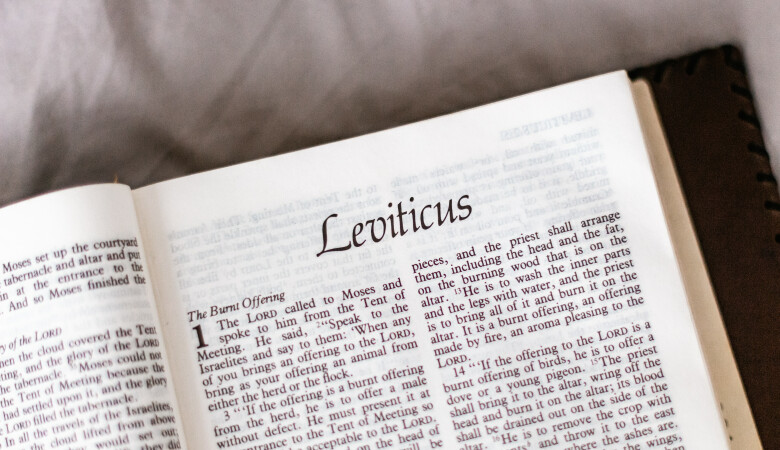Jesus is Greater than Moses (Hebrews Sermon 9 of 74)
November 14, 2010 | Andy Davis
Hebrews 3:1-6
The Law of God, Exaltation of Christ
Coming Down the Mountain
I wonder what it must have been like to watch Moses coming down from the holy mountain with that radiant shining face. This was the awesome, confident, bold leader who had faced down Pharaoh and had boldly commanded him, "This is what the Lord, the God of Israel says, 'Let my people go...'" This Moses, this was the one who had brought awesome and devastating plagues on the whole nation of Egypt. Plagues of blood and frogs and flies, gnats, locust, boils, hail, darkness and death. This Moses. This was the man who had led Israel to the brink of the Red Sea, hemmed up against the Red Sea, and then facing Pharaoh's enraged army. This man who had said, "Stand firm and you will see the deliverance the Lord will bring you today." Then led the Jews through the Red Sea on dry land, with water walling up to the right and to the left. Israel walking on dry ground, and then this one who had unleashed one final devastation on Egypt as the waters of the Red Sea came crashing back down on Pharaoh's army and destroyed it completely.
This was the man, this Moses, who had fed Israel with manna from heaven, and had struck the rock and had water flow out of the rock to care for the thirst of almost two million Israelites out in the desert. This Moses was the man who had led them to the base of the mountain of God. Mount Sinai with its terrifying display of power and of the holiness of God, a dark cloud, thunder, lightning, earthquake, a trumpet blast and the voice of the living God speaking the 10 commandments. "I am the Lord, your God, who brought you out of Egypt, out of the land of slavery. You shall have no other gods before me." This Moses was the very one who had climbed up that mountain and disappeared in that same cloud. Gone for 40 days and returned with two tablets of stone, the same 10 commandments now inscribed with the finger of God. And "When Moses came down from Mount Sinai with the two tablets of the testimony in his hand, he was not aware that his face was radiant, because he'd been speaking with the Lord God. When Aaron and all the Israelites saw Moses, his face was radiant and they were afraid to come near him." This Moses, how great was this man? How great this giver of the law, this terrifying, glorious figure, the greatest man of all Judaism?
Well, he was great. He was very great. Jesus is infinitely greater. And that's the burden of the text. As great as Moses was, Jesus is infinitely greater. Whose glory will not only temporarily cause one man's face to shine, but will irradiate all of the new heavens and the new Earth and us besides for all eternity. How great is that? And so we get to contemplate the greatness of Jesus once again.
I. Fix Your Thoughts on Jesus
I know you won't believe me, but now I'm telling you Hebrews is my favorite book in the Bible. Now you're going to quote that to me when we do the next book and you go ahead and do that. But right now at least, my favorite book in the Bible. And why? Because it just preaches Jesus to me day after day after day. And right away, that's what the text tells us to do in verse one. Fix our thoughts on Jesus. Amen. That's what we get to do again. It's going to be renewing to you. If you're a child of God, this is going to refresh you. If you're a child of God, it's going to recharge your spiritual batteries. Because you get to fix your thoughts on Jesus. That's the whole purpose of the paragraph. Now keep in mind again, the danger that the author to Hebrews was addressing. These Jewish people that he's writing to had made some kind of outward profession of faith in Christ.
That profession is mentioned even in this paragraph. Look at verse one, "Therefore, holy brothers, you who share in the heavenly calling, consider or fix your thoughts on Jesus, the apostle and high priest of our confession." They had made a confession or a profession of faith in Christ. That confession, I think it's a formal title for what these Jewish people had done to make a clear outward profession of faith in Jesus Christ. I think it probably involved water baptism. Says in Romans 10:9 and 10, if you confess with your mouth Jesus is Lord, and you believe in your heart that God raised him from the dead, you will be saved. For it is with your heart that you believe and are justified. And it's with your mouth that you confess and are saved. So these Jewish people had made that confession of Christ. And they had, I believe, been water baptized and baptized in Christ.
Now however, these Jewish people were under tremendous pressure by their surrounding Jewish friends and neighbors, and relatives, and rabbis to renounce their faith in Christ and go back to Old Covenant Judaism. And at the center of Old Covenant Judaism is the law. And the mediator of the law was the towering figure of Moses. They're being tempted to turn their backs on Jesus and go back to Moses. And so these six verses are saying, "don't do it," because Jesus is infinitely greater than Moses. That's what he's getting at. The author compares Jesus with Moses. And why? To show the superiority of Jesus to Moses. It would make no sense whatsoever to retreat to Moses, to turn away from Jesus and go back. It's especially true when we consider that Moses was merely a servant in God's house but Jesus is a son over God's house, ruling over it. And we're going to talk about it.
The Purpose of this Paragraph
This paragraph exists to continue the exhortation of the entire Epistle. The whole letter of Hebrews is to stay close to Jesus and finish the race you've begun. Don't merely start with Jesus, let's go ahead and finish with Jesus. Let's run every day this race with endurance. Day after day in Jesus. That's what this is about. More than anything, he wants these Hebrew Christians to know who they are in Christ and to know how great Christ is. They need to consider themselves, who they are in Christ and they need to consider the greatness of Christ. And so he focuses on them here in verse one it says, "Therefore, holy brothers, you who share in the heavenly calling." Now, whenever you see the word therefore, it should instruct you to look backward in the text.
You never begin a book of the Bible with the word therefore. It's always in the middle in the flow of an argument and so the author having said some things, having established some truth, now based on that, he's going to call them to consider some things. And so we have to look back. So we're looking back and now at Hebrews 3, we're looking back to Hebrews 2. Now what we learned in Hebrews 2 and it proclaim there, of course, Jesus as the captain, the trail blazer of our salvation. He is the author of our salvation. This is the one who defeated death, crushed Satan, who held the power of death and released from captivity all of those who are held in slavery all their lives by fear of death. This greatness, the greatness of Christ and then ended with that enticing and comforting news that Jesus is for us a merciful and faithful high priest and service to God, who made atonement for the sins of the people. And in verse 18, "Because he himself suffered when he was tempted, he's able to help people like us and them, who are being tempted." Therefore, because of all of the greatness of Christ and because he is our high priest and because he is able to help us who are being tempted, how could any Christian, therefore, turn away from Jesus? How could any Christian therefore, go back to Moses? That's really the link here.
Understand Who You Are, What You’re Called to Be: Holy Brothers
The real remedy here isn't turning away from Jesus. Now it's getting even closer to Jesus, drawing even closer to consider him more, to call on him more, to meditate on him more. And this first verse calls them holy brothers. Holy brothers. Now, the word "holy" means set apart unto God as His precious possession. Set apart unto God. In the Old Covenant, "holy to the Lord," was actually literally written on things or spoken over significant things in the Old Covenant. For example, a holy plate, a plate, a golden plate was engraved holy to the Lord and it was put on the priest's turban, on his head, as though his head, and really therefore his whole body is holy to the Lord. The priest, the Aaronic priest is holy to the Lord. The annual blood atonement for sin was called, "Most Holy to the Lord." That special blend of incense, whose recipe is carefully described in Exodus 30, was called, "Holy to the Lord," and therefore, no Israelite was permitted to make a special blending of the same recipe and use it for his or her own private use. No, no. It was holy to the Lord. I was for His sacred possession, only for Him.
The Sabbath Day was called a sacred day, set apart and holy to the Lord. This understanding of being holy to the Lord was well established to Jewish people. Above all, the people of God themselves... The people of God themselves were to be God's holy people. They were to be set apart for His personal use. They were to be separate from all of the nations and separate also from their own wicked ways. And so the word "holiness" at its root gives a sense of separation. The people of God separated from the unholy nations, the wicked nations, and they themselves separated from all evil and God's prized and precious possession. Says in Deuteronomy 76, "For you are a people holy to the Lord. The Lord, your God, has chosen you out of all the peoples on the face of the Earth to be His people, His treasured possession." So the Church of Jesus Christ now in the New Covenant, We are holy to the Lord. We belong to God. We were bought with a price, the blood of Jesus. We are holy to Him. We are holy brothers. And the word "brothers" implies that beautiful sacred family that we are. We are brothers and sisters in the living God. It's not a bunch of strangers now.
We are together with Jesus in the family of God. We have been given the right to be called children of God. How beautiful is that? And so we are members of God's household now. Members of God's household. The end of this little section in verse six, Hebrews 3:6, it says, "We are His house." We, we the people. We are His household and we, holy brothers, we are the ones who share, it says, in a heavenly calling. Now what does this mean to share in a heavenly calling? Well, we share many things together. There's the sense of Koinonia, that sense of sharing or fellowship that we have. In the early church, they shared all things in common, their possessions. No one claimed that any of his possessions was his own, but they shared everything that they had. But far more significant fellowship is in our spiritual blessings. The things we share spiritually which unite us together.
We share Christ, we share the indwelling Holy Spirit. We share our adoption into the family of God, these things. And here we share, it says, "A heavenly calling." I think about those two witnesses in Revelation 11, you remember those ones that stand during the days of the tribulation and they take on the Antichrist and they're so powerfully preaching Christ and no one can stop them, you remember those two? Awesome ministry. Remember if anyone opposed them, fire came out of their mouths and burned up the enemies of God. I remember hearing John McArthur preach about it, he said, "If God's looking for volunteers, I'd like that job." That would be an awesome job, being one of the two witnesses during the final days. But at the end of their ministry, they were killed. The beast rose up against them, the Antichrist, and killed them, and they died, and they were there in the streets of the city for three days. Then, suddenly, they came to life. And immediately after that, a loud voice from heaven called down to them, "Come up here." And they went up to Heaven in a cloud while their enemies looked on. Now that's a heavenly calling. Amen?
A heavenly calling. "Come up here and live with me." The apostle John himself had the same kind of heavenly calling in Revelation 4, "Come up here and I will show you things which must take place after this." This is the call of God to Heaven, in the future I think. Coupled with the call of God, this heavenly calling is a call of God to live like it now. Amen. A heavenly life now, a holy life now, that's your calling. Philippians calls it "the upward call of God in Christ Jesus." It's an upward call. We're going up. We're improving in our Christian lives. We're becoming more like Jesus, not less. We're not degenerating. We are growing in grace and the knowledge of Christ. It's an upward call of God in Christ Jesus. Ephesians 4:1 talks about the heavenly calling in this way, it says, "I therefore, a prisoner for the Lord, urge you to walk in a manner worthy of the calling to which you have been called." That's the heavenly calling. It's a future calling that we're going to Heaven, but coupled with a present lifestyle. That's the heavenly calling.
The Remedy: Fix Your Thoughts on Jesus
And now comes that consistent command of the book, the remedy to all evils and all ills. If you're unhappy today, listen to these words, here's the remedy: Fix your thoughts on Jesus. Consider Jesus, meditate on Jesus, feast your heart on Jesus, "the apostle and high priest whom we confess." Again and again, the author wants these suffering, persecuted, downtrodden people to think about Jesus. The entire Epistle began, as you know in Hebrews one, with an extended meditation on the greatness of Jesus, right from the very first paragraph. Remember, in Hebrews 1:3 it says, "The Sun is the radiance of God's glory and the exact representation of his being, sustaining all things by his powerful word." Right through that first glorious chapter, we're talking about Jesus. We're talking about Jesus and we're not the only ones. God, the father, talking about Jesus. Remember that in Hebrews 1:8, "But about the son, he says, 'your throne, oh, God, lasts forever and ever. Righteousness will be the scepter of your kingdom. You have loved righteousness and hated wickedness.'" That's God, the father, talking about God, the son. It's an amazing thing to think about it, isn't it? God, the father, fixes His thoughts on Jesus too, and He loves him. And so fix your thoughts on Jesus.
And on into chapter 2, we have this meditation on Jesus. "We see Jesus," it says, "who is made a little lower than the angels, now crowned with glory and honor because he suffered death, so that by the grace of God he might taste death for everyone." Notice what it says there in Hebrews 2:9, "we see Jesus… now crowned with glory." Now, how do we do that? How do we see Jesus, now crowned with glory and honor? We can understand how we will see Jesus then, crowned with glory and honor, but in Hebrews 2:9, it says, "we see Jesus now crowned." Well, I tell you it's only by faith. You take the word of God, like Hebrews, a good chapter on Jesus, and just read it and meditate on Jesus. You think about Jesus by the power of the spirit. You feed your mind on Jesus, you fix your thoughts on Jesus. The Greek word here in this verse implies a deep, diligent, rational, spiritual, consideration of Christ. Who he is, what he's achieved, by faith based on the scriptures. That's what you're doing. This alone can feed our souls in our days of trial and keep us strong in Christ. By this alone, dear friends, can we avoid drifting away from Christ. As it said in Hebrews 2:1, "We must pay more careful attention to what we have heard so that we do not drift away."
Toward the end of the book, it's going to give us the same recipe again. In Hebrews 12:2, it's going to say, "Let us fix our eyes on Jesus, the author and perfecter of our faith, who for the joy set before him endured the cross, scorning its shame, and sat down at the right hand of the throne of God." Very next verse says, again, "Consider him who endured such hardship or opposition from sinful men so that you will not grow weary and lose heart." Again and again, consider him, fix your eyes on him, we see Jesus. So do it. Use this sermon time well. Think about Jesus. Frankly, it's so blatant as I'm preaching this that if you're thinking about anything else, you are, dear friends, distracted. [chuckle] We are thinking about Jesus today. We're considering him. And what does it call him? It calls him the apostle. It calls Jesus the apostle. What an interesting title to give to Jesus. We know Jesus chose the 12 apostles, sent them out with a mission.
The word "apostle" is just the English version of the Greek verb "apostolo" which means to send off or a sent one, somebody went with a mission. An apostle is literally an authoritative messenger from a king, a legate, let's say, an ambassador, you could imagine an ambassador with a right to represent the head of state. Jesus is that for the kingdom of heaven. He is the kingdom of heaven's ambassador, apostle, come from heaven to earth. And he is the sent one literally. Jesus called himself that in John 10:36. Right in the middle of a thought, just picking up, it says, "What about the one whom the Father set apart as his very own and sent into the world?" Jesus was sent into the world by God the Father. And so, he came into the world to speak the Father's words, an authoritative message from the Father. He is the Father's apostle. And so it says in Hebrews 1:1-2, "In the past, God spoke to our forefathers through the prophets at many times and in various ways, but in these last days, he has spoken to us by his son." That means the son's an apostle, he's sent by God to speak the Father's message.
And Jesus said, "When you have lifted up the Son of Man, then you will know that I am... " literally what it says, we'll just leave it there. "I am the I am," "and that I do nothing on my own, but I speak only what the Father has taught me to speak." He is the ultimate apostle from the Father. He only says what the Father told him to say. He's sent him to the world as God's apostle, it also calls him the high priest of our confession. He is the apostle and high priest of our confession. This is the second time now that the Book of Hebrews has called him the high priest, starting to ramp up, starting to heat up now on the theme of high priest, but still not yet what we fully develop. We'll wait till later chapters, but we start to see that Jesus has that ministry like Melchizedek, a high priest in the order of Melchizedek, he is a king and a priest and we'll develop it fully there. But he is our high priest, and he is faithful to the one who appointed him.
The Faithfulness of Jesus Christ
Now, what does that mean that Jesus was faithful? Well, whatever the Father gave him to do, he did. He carried out what the Father had entrusted him. He was faithful to what was given into his hands. And so, Jesus in his high priestly prayer, John 17:4, makes an astonishing and an amazing statement. He says this in John 17:4, he says, "I brought you glory on earth by completing the work you gave me to do." Jesus is the only man in history that can say that. I can't even say it for a single day, maybe not even for a single hour. Could you really say, "Lord, for the last hour, I've done everything you wanted me to do"? But Jesus can say that over his whole life work. "I brought you glory on earth, [Father] by completing all the work you gave me to do." That's what he's saying. And again, in John 14:31, "The world must learn that I love the Father and that I do exactly what the Father has commanded me to do." He was faithful to the one who appointed him. Faithful to God.
II. Moses Was Faithful in God’s House
Now, we bring up this idea of Moses. Moses is now brought into the text, brought into the epistle now, we have to deal with Moses. And we have to deal with him carefully because Moses is going to be in heaven. Moses is our brother in Christ. Moses did a good ministry. There's nothing wrong with Moses. And so, we have to honor Moses but honor Jesus more, that's all. And that's exactly what's going on here. And so, in verse 2, "Moses was faithful in all God's house." Jesus "was faithful to the one who appointed him just as Moses was faithful in all God's house." This is God's testimony about Moses. Just stop for a moment. How would you like that to be God's testimony about you? At the end of your life? "He, she, faithful to what I gave them to do." Oh, you should yearn... You should have a holy ambition for that. I want you to say that over my life, "He was faithful. She was faithful to what I entrusted to them to do."
And that's God's testimony right here, "He was faithful." He had called Moses to go back to Pharaoh and deliver the Jews out of Egypt, and Moses did that with great faith and with great courage. Moses boldly confronted Pharaoh with all 10 of the plagues, commanding again and again, "This is what the Lord, the God of Israel says, 'Let my people go...'" God used Moses to do those mighty signs and wonders. God led the Jews boldly through Moses out of Egypt during the first Passover, led the people through the Red Sea, again, with great courage and boldness. Moses was used by God to provide manna from the sky and water from the rock. Daily miracles that kept Israel alive. Moses led the Jews to Mount Sinai and received, as I said, from the finger of God, the tablets on which the 10 Commandments had been written. Moses, then, as time allowed over the next 40 years of wandering the desert, gave to the Jews an incredible legacy, the first five books of the Bible: Genesis, Exodus, Leviticus, Numbers, and Deuteronomy; written by Moses as they wandered in the desert.
And when the faithless, unbelieving Jews refused to enter the promised land, and it was extended to 40 years, Moses, first of all, interceded for them and prayed that God wouldn't kill them. And then having received that blessing from God, he then led that fractious and rebellious people for 40 years in the desert, caring for them like a nursing mother caring for little infant. He says, "Did I give birth to these people? Do I have to keep looking after them?" There are moments, difficult moments, but he was faithful. He was faithful to do what God want to do. Faithful in all God's house.
And therefore, Moses is rightly revered in Judaism. God appeared to Moses in the flames of the burning bush and chose him as the leader of the people. God had done incredible miracles through Moses, supernatural miracles like no one else in Jewish history. Moses was the one that God had spoken to in some mysterious sense, face to face. Think about Exodus 24, "Then he said to Moses, 'Come up to the Lord, you and Aaron, Nadab, Abihu and seventy of the elders of Israel. You are to worship at a distance.'" Listen to this, "But Moses alone is to approach the Lord. The others must not come near and the people may not come up with him." What an honor for Moses. He alone was invited right into the very presence of God. In Exodus 33:7-11, says, "Now, Moses used to take a tent and pitch it outside the camp some distance away, calling it the Tent of Meeting. Anyone inquiring of the Lord would go to the Tent of Meeting outside the camp and whenever Moses went out to the tent, all the people, all the people rose and stood at the entrance of their tents and watched him go. And as Moses went into the tent, the pillar of cloud would descend and stay at the entrance. When Moses was there, the cloud would come down while the Lord spoke with Moses. And whenever the people saw the pillar of cloud standing at the entrance to the tent, they all stood and worshipped as God spoke with Moses." Incredible. The Lord would speak to Moses, it says, face to face as a man speaks with his friend. Exodus 33:11.
God gave a direct testimony concerning his intimacy with Moses in Numbers 12 when Aaron and Miriam began to speak against Moses and say that the Lord had spoken as much through them as they had through him, God said, "I beg to differ." He made a clear distinction in Numbers 12:4-8, "At once the Lord said to Moses, Aaron and Miriam, 'Come out to the tent of meeting all three of you.' So the three of them came out. Then the Lord came down in a pillar of cloud and he stood at the entrance to the tent and summoned Aaron and Miriam. And when both of them stepped forward, he said, 'Listen to my words.'" Now I want to tell you something. I believe the author of Hebrews, as he's writing chapter three, is thinking about these verses. See if you can see the connection here. "Listen to my words. When a prophet of the Lord is among you, I reveal myself to him in visions. I speak to him in dreams, but this is not true of my servant Moses. He is faithful in all my house. With him I speak face to face clearly and not in riddles. He sees the form of the Lord. Why then were you not afraid to speak against my servant Moses?"
So there are two little themes there from Numbers 12. 1) Faithful in all my house, and 2) he is my servant. And I think the author's pulling those two ideas out and meditating on them. Again, I said, this text is not in any way trying to denigrate Moses. Not at all. Just trying to exalt Jesus as infinitely greater than Moses. When Moses then would speak with God and return to the Jews, his whole face shone radiantly with the absorbed glory of God. He would have to put a veil across his face because they're afraid of him. They're afraid of just being near Moses because of the glory that was shining, fading as it was. In generations to come, then Jews would revere Moses as the greatest figure of their history, and that's the whole problem that the author's trying to address here, revering Moses and denigrating Jesus as a result. Well, how does that happen? Well, it definitely happened.
Think about the time that Jesus healed the man born blind. Do you remember that? There was a man born blind and he was sitting and begging. Jesus crouched down and spat on the ground and made mud with his saliva and he put it on the man's eyes, smeared the mud on the man's eyes and commanded him to go away and wash. And the man went away and washed, then he came home seeing. And he was then arrested by the Jews, the Jewish leaders. They arrested the man, brought him into the Sanhedrin, I guess, into account for what had happened. And as the thing unfolded, they began to become abusive, to hurl insults at this man. In John 9:28-29, "They hurled insults at him and said, 'You are this fellow's disciple. We are disciples of Moses. Now we know that God spoke to Moses but as for this fellow, we don't even know where he came from.'" Now there it is, you see. Moses and Jesus, head to head, and Jesus is nothing. He's denigrated.
That's what these Hebrew professors, their faith in Christ, were being tempted to turn back to. "We know God spoke through Moses but as for this fellow, we don't know where he came from." I love how the man born blind answered, he said, "Now that is remarkable. You don't know where he came from and yet he opened my eyes." Actually, literally in Greek that man said, "Now here is the real wonder. Not so much that God can open the eyes of a man born blind but that you can't see God when he does it. That's the real wonder." It's an amazing statement. That man born blind may be one of my favorite figures in the New Testament. I love him. Look forward to meeting him in heaven.
But it wasn't just this man born blind, there's also Stephen. Remember how Stephen was preaching Christ boldly? And again, they pitted the Christ that Stephen was preaching against Moses who had given them the temple or the Tabernacle which led to the temple. And so they secretly persuaded some men to say, "We have heard Stephen speak words of blasphemy against Moses and against God." That's the attitude that the author to Hebrews is addressing here. We know that God spoke through Moses but as for Jesus, we can leave him behind. Now Moses mediated the old covenant, and that's why the author is mentioning Moses. The old covenant was called the Law of Moses. And Jesus Christ came to give us a higher way. As it says in John 1:17, "The law was given through Moses, but grace and truth came through Jesus Christ." Let me tell you right now if you end up in heaven, it's not going to be because of the Law of Moses. It's going to be because of the grace and truth of Jesus Christ. And so that's how much greater Jesus is. Jesus can get you to heaven, Moses can't get you there.
It's a law, it's what it is. The Law of Moses. Law condemns. Grace saves. And grace came through Jesus. And so these Jewish Christians who are being tempted to renounce Christ and go back to Judaism were choosing Moses over Jesus, and that choice was eternally foolish, infinitely foolish.
III. Jesus is Greater than Moses as a Son is Greater Than a Servant
And so Jesus is greater than Moses as a son is greater than a servant. Look at verse 3, "Jesus has been found worthy of greater honor than Moses, just as the builder of a house has greater honor than the house itself." He's directly comparing in verse 3, Jesus and Moses, and he says Moses is worthy of honor and I would say that Moses was greater than any other prophet. All the prophets that God sent to Israel in the old covenant, you know what they were? They were basically prosecuting attorneys, like district attorneys. And they went in the name of the law to a rebellious people to bring a lawsuit against them on God's behalf. Alright, that's fine. That's what they did but where did the law come from? Well, it came from Moses.
So Moses is greater than any of the prophets that followed. As Numbers 12 said, Moses is faithful in all my house. When I speak to a prophet now, I'm going to do it with visions and dreams but with Moses, face to face. Saw God's glory, achieved all of these incredible things. A man of action, a man of accomplishment, brought them out of slavery. But, still, merely a house servant really. He's a house servant. Moses was faithful, verse five, as a servant in all God's house testifying to what would be said in the future. The author reiterates Moses' faithfulness, faithful as a servant and a prophet. Testifying to what would be said in the future. What's that? Well, can we sum it up in one word? Jesus. That's what Moses is testifying about the future. Moses is talking about Jesus.
In John chapter five, Jesus deals directly with the Jewish authorities who are there in the name of Moses. And he says, "Do not think I will accuse you before the Father. No, your accuser is Moses on whom your hopes are set." Now that's interesting, isn't it? You're trusting in Moses, he cannot save you. He's going to accuse you. He's not going to save you. If you believe Moses, you would believe me. Listen to this statement, because he wrote about me. [chuckle] Do you realize how arrogant that would be if Jesus isn't the Son of God, the Messiah? Either you believe or you don't believe. And Jesus says very plainly, "He wrote about me but since you do not believe what he wrote, how are you going to believe what I say?"
And so after his resurrection, you remember? Jesus, resurrection, body, disciples, disoriented, dismayed, discouraged, depressed. And Jesus catches up with two of them on the road to Emmaus, you remember that? Wouldn't you love to be one of those two? Wouldn't you love that? To get rebuked by Jesus on Easter morning. What a good thing. You ought to be happy right now and look at you, you're sad and miserable. "How foolish you are," Jesus said to them. "And how slow of heart to believe all that the prophets have spoken. Did not the Christ have to suffer these things and then enter into his glory? And beginning with Moses and all the prophets, he showed them everything what is written in the scriptures concerning himself."
Well, that's what Hebrews 3:5 means. Moses was faithful as a servant in all God's house testifying to what would be said in the future about Jesus. It's all about the gospel. But Jesus is worthy of greater honor than Moses. Look at verse three, "Jesus has been found worthy of greater honor than Moses, just as the builder of a house has greater honor than the house itself." Moses is worthy of great honor but he's still just a creature. That means something created. He's a created being.
Frankly, in verse three, if you read carefully, Moses is portrayed as the house, Jesus as the builder of the house. Later, as I said, he's going to make it clear that the house is all of God's people, but Moses is included. Moses is part of the house. Verse 4, "For every house is built by someone but God is the builder of everything." Moses then was built by God. It's kind of a weird thought, isn't it? Moses was assembled by God. He was assembled where? In his mother's womb. His father was Amram, a descendant of Levi. His mother was Jochebed, Amram's aunt. An interesting story. You can ask them about it when you get to heaven, but there it is. And so, as Moses was growing inside his mother's womb, God was knitting him together. And then he protected him as he was floating in that basket, in the bulrushes there in the Nile. But the scripture reveals that it's Jesus himself that knit Moses together.
It was God through Jesus that all things were made. It is through Jesus that Moses' body held together. It's through Jesus that Moses even exists. It was Jesus himself, I think, if you read carefully, who appeared to Moses in the flames of the burning bush. For wasn't it the Angel of the Lord who did that? And wasn't it Jesus, who was the Angel of the Lord, that led Israel? Remember how God basically said, "I'm going to send my angel ahead of you and he's not going to mess around with you people. He's going to punish you if you don't follow him, so you better follow him." That's what God says about the angel. The angel is Jesus. Jesus then, in effect, is represented by the pillar of cloud and the pillar of fire. That's Jesus. It was Jesus himself, in some mysterious spiritual sense, who was the Rock that gave them drink, it says in Corinthians 1:10. No, He wasn't the rock, but He is the spiritual Rock from which the water flowed. And Jesus gave them the manna that they ate, that Moses just told them where to find it. And so He likens himself to this in John 6, "I tell you the truth, it's not Moses who gives you the bread from heaven, but it's my Father who gives you the true bread from heaven. For the bread of God is he who comes down from heaven and gives life to the world." And the people said, "Sir, from now on, give us this bread." Jesus said, "I am the bread of life; he who feeds on Me will never go hungry and he who drinks from Me will never go thirsty."
Jesus is greater than Moses in every way, dear friends. In every way. Jesus is the builder of God's house and He's the authority figure over it. That's how I read it. When I read this section, I read it this way, "Moses was faithful, as a servant in all God's house, testifying what would be said in the future. But Christ is faithful as a Son over God's house." You see, the contrast there is between someone who's under and someone who's over. And Jesus, as the Son, as the only begotten Son, as the heir of everything, He is the ruler of the house. He's the only begotten Son of God.
And so, on the Mount of Transfiguration, Matthew 17, Jesus one day takes with him Peter, James and John, leads them up a high mountain by themselves. And there he is transfigured before them, and his face shone like the sun, and his clothes became white as light. And just then there appeared before them Moses and Elijah, talking with Jesus. And Peter spoke up at that moment. We've talked about that before. Peter's an interesting man, isn't he? It's time to talk. Mark says he didn't know what he way saying. But he speaks up and says, "Lord, it's good for us to be here. If you wish, we'll make three shelters. One for you, one for Moses, one for Elijah." He didn't know what he was saying, that's what the scripture says. "While Peter was still speaking, a bright cloud enveloped them. And a voice came from the cloud, 'This is My Son, My only Son whom I love. Listen to Him.'"
Notice that the voice from the cloud didn't mention Moses at all. Never said a word about Moses. And when the disciples heard that voice, they fell face down to the ground terrified. But Jesus came and you picture him gently touching their shoulders, telling them to get up. "Don't be afraid," he says. "And when they looked up," the text says, "they saw no one except Jesus." Do you not see the significance of that? The way it's written? Moses and Elijah just disappear. So does every human being, they all just disappear. Just servants, all of them, us too, servants, servants, servants through whom God works. Jesus stands alone to the glory of God the Father. That's what's going on here in this text.
IV. We Are God’s House, If...
Now, one final word. We are God's house if... If, friends, is why the book was written. It's because there's an if here. You may be part of God's house. You may not be part of God's house. It's not a given. It's not a guarantee, actually. Just because you're a human being doesn't mean you're part of God's house. It's not true that every single human being that lives is part of God's house. That is not true. We are His house. Now, what does that mean? We are the temple or the tabernacle where God dwells by His Spirit, it says in Ephesians. 1 Peter 2 says we're like living stones built up in the house of God. We are living stones in the house. We are the spiritual temple, that is the house. We are the house but only if. There's some uncertainty about this. Well, if what? If we continue in our confession in Christ. You see it? If we continue to profess that Jesus is our Savior. If we hold on to our courage in the hope of which we boast.
The Book of Hebrews is all about keep running, dear friends. Keep running the race. Don't give up. Don't drop out. Don't stop coming to church. Don't stop your quiet time. Don't stop your prayer life. Don't stop your fight against sin. Keep running this race with endurance. We are His house if and only if we continue in Christ. We hold on to our courage in the hope of which we boast. What courage is that? Courage toward God, to enter into the very presence of God boldly through the blood of Jesus. And courage horizontally to a persecuting Christ-hating world. Don't be ashamed of Jesus in this world. Testify to Him. Do it tomorrow at work. Do it to a non-Christian friend or relative or neighbor. Be courageous Christians. Hold on to your courage and hold on to your hope, the hope of your boasting. And what is that hope? You're going to heaven when you die. It's going to be glorious.
You're not looking backward to the land you left. You're looking ahead to the New Jerusalem where you're going. And you've got a strong and vibrant hope that that place is going to be glorious.
V. Applications
What applications? Well, I prayed and I will continue to pray. If there are any lost people here, that you would turn to Christ and look to him now in faith. You're not going to see him physically, you're hearing the word of God now. Jesus took on a human body, shed his blood on the cross, so that if you trust in him, you have eternal life. And Christ is faithful to God's mission, dying on the cross for our sins, and he'll be faithful to save you right to the end if you just trust in him.
Secondly, just understand how great Jesus is. Do you realize he is 100 million times greater than the highest estimation of him that any of us have in this room right now, whoever it is? It might be me, it might be one of you, I don't know, but wherever we've got Jesus, he's 100 million times higher than that. Keep pushing upward in your estimation of Jesus. Keep meditating on him, keep seeing how great he is, how much greater than Moses, how much greater than anyone.
And thirdly, worship Christ based on that estimation, just love him. I won't do it, but I'd love to ask Eric and all those beautiful musicians come and sing to Jesus again. Wouldn't that be awesome? I'm not going to do it, I abused my privileges here but I was just worshipping Jesus. I love that song because it sings to me of Jesus, and makes me sing. We need to worship Christ and fill our hearts with gratitude to him, and with sweetness and joy that comes from contemplating him.
And finally, if I can just urge you as a brother and sister in Christ, embrace your heavenly calling. You are holy to the Lord. Set apart for his precious possession. God is jealous over your affections. He's jealous over your life. Don't give yourself over to idols. Don't sin. Don't lust. Don't covet. Don't gossip and slander. Don't steal. Don't do things that are wicked. Be holy. Embrace your heavenly calling in Christ.
Close with me in prayer. Father, we thank you for the greatness of Christ. We thank you for the joy that comes to me personally to be able to proclaim Christ, and to feel in my heart the joy that just today, at best, at best, we saw through a glass darkly but someday, we're going to see face to face. And I pray Father, that you would move in us. I pray again for a lost person, a man, a woman, a boy, a girl, someone hearing the gospel for the first time that they would trust in Jesus. And Lord, help the rest of us to know just how great Jesus is, and embrace our heavenly calling in him. In Jesus' name. Amen.






























